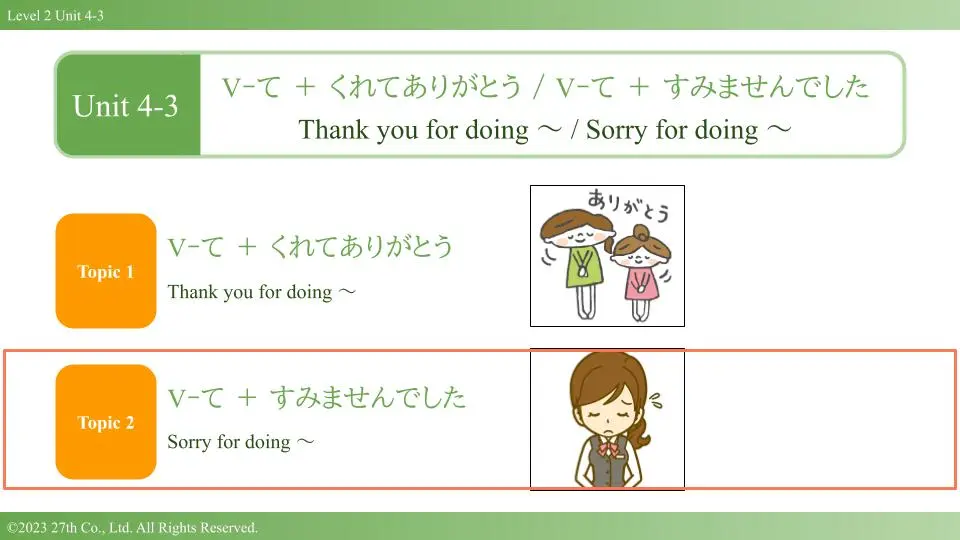
How to Say “Sorry for Doing” in Japanese | V-te + Sumimasen Deshita
Introduction Need to say “I’m sorry for doing something” in Japanese?Then it’s time to learn the grammar pattern: 👉 V-て + すみませんでした... Read more.
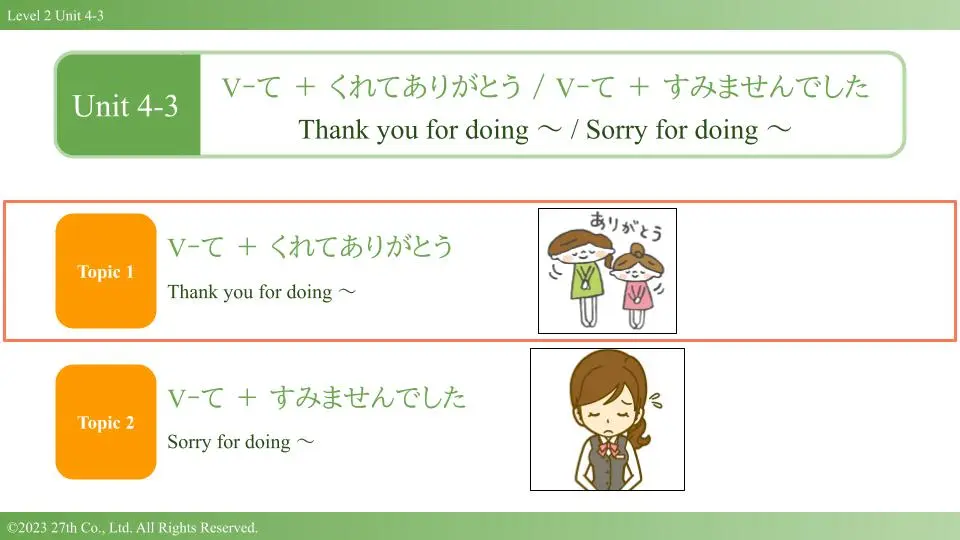
How to Say “Thank You for Doing” in Japanese | V-te + Kurete Arigatou
Introduction Want to say “Thank you for doing something” in Japanese?When someone helps you, teaches you, or shows kindness through an action, you can... Read more.
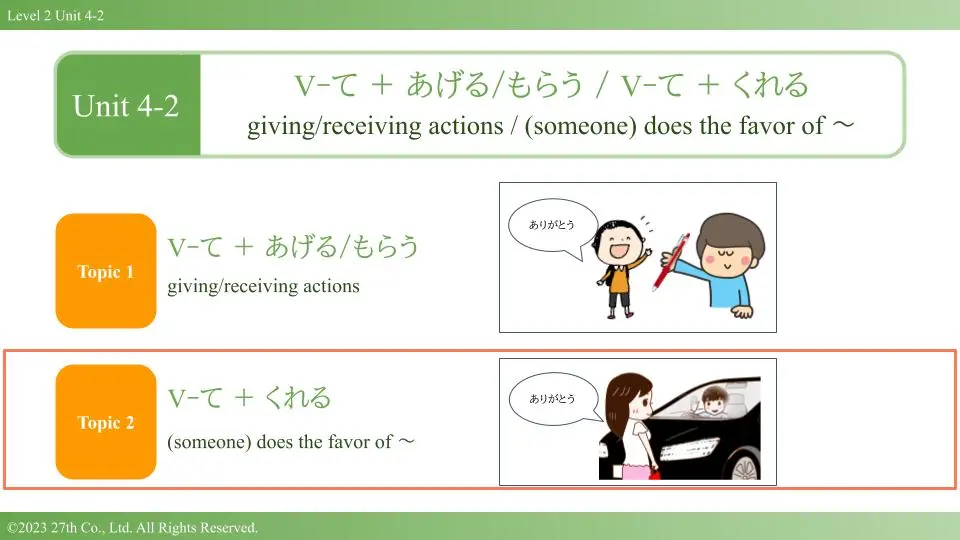
How to Use V-te Kureru (V-て くれる) in Japanese | Expressing Kind Actions Toward You
Introduction Want to express when someone kindly does something for you in Japanese? In that case, the verb you need is: 👉 V-て + くれる This form tells us... Read more.
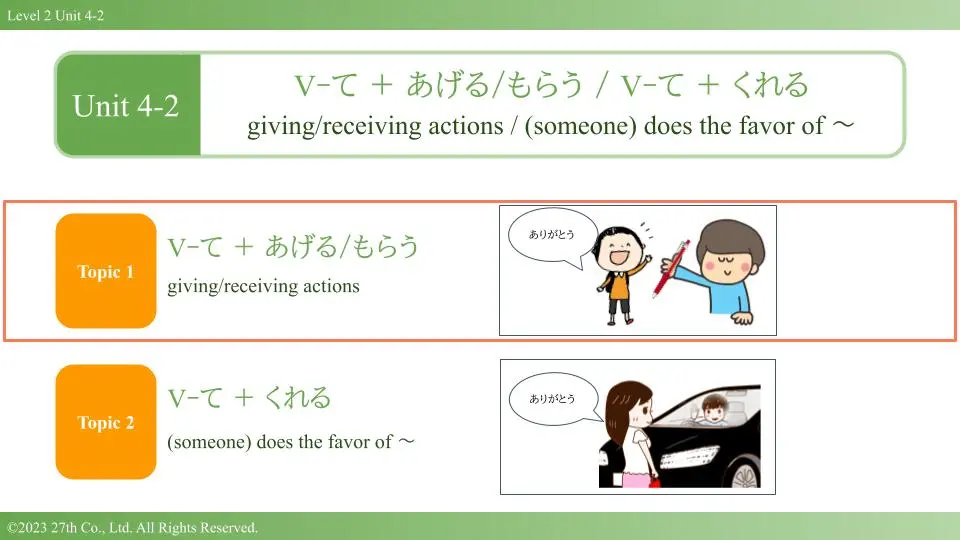
How to Use V-てあげる and V-てもらう in Japanese | Giving and Receiving Actions
Introduction In Japanese, expressing that you do something as a favor for someone, or that you receive a favor from someone, involves using the V-てあげる (te... Read more.
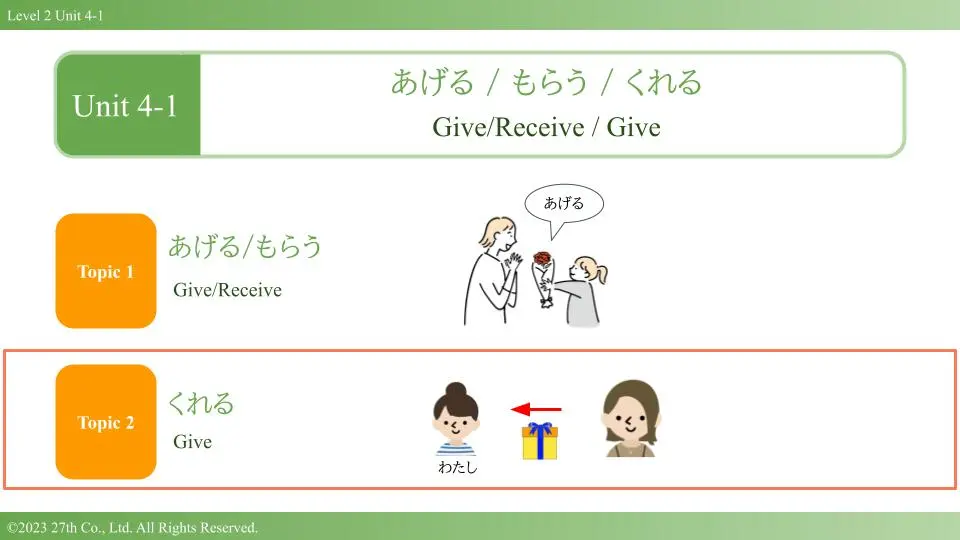
How to Use Kureru (くれる) in Japanese | When Someone Gives You Something
Introduction Want to say “someone gave me something” in Japanese? In English, you use ‘give’ or ‘receive’ depending on the action.... Read more.

Haha no Hi (母の日) – Mother’s Day in Japan, Second Sunday of May
Background Origins and Meaning Mother’s Day (母の日, Haha no Hi) in Japan is celebrated on the second Sunday of May. It honors mothers and motherhood, inspired... Read more.
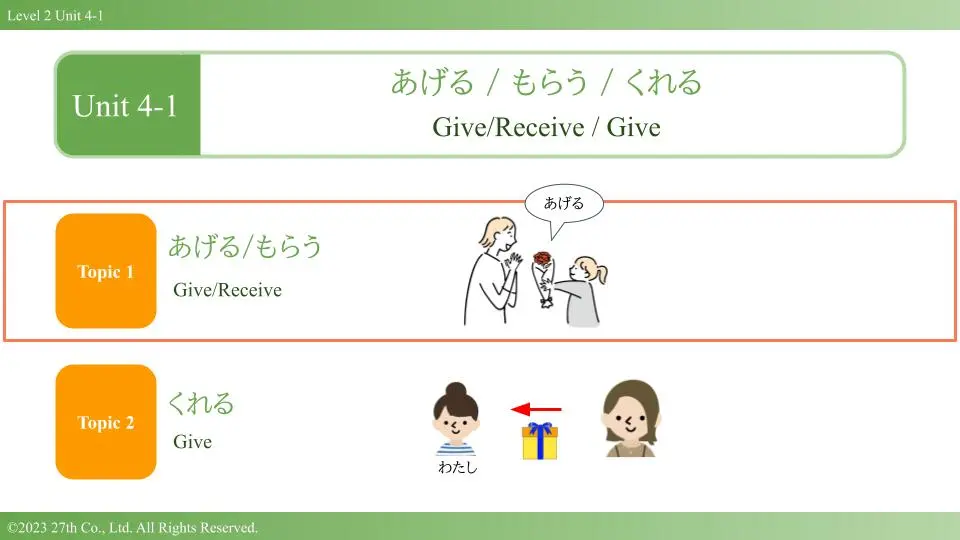
How to Use Ageru and Morau in Japanese | Express Giving and Receiving
Introduction Want to talk about giving or receiving something in Japanese? Whether you’re describing a birthday gift, a thank-you present, or daily exchanges,... Read more.
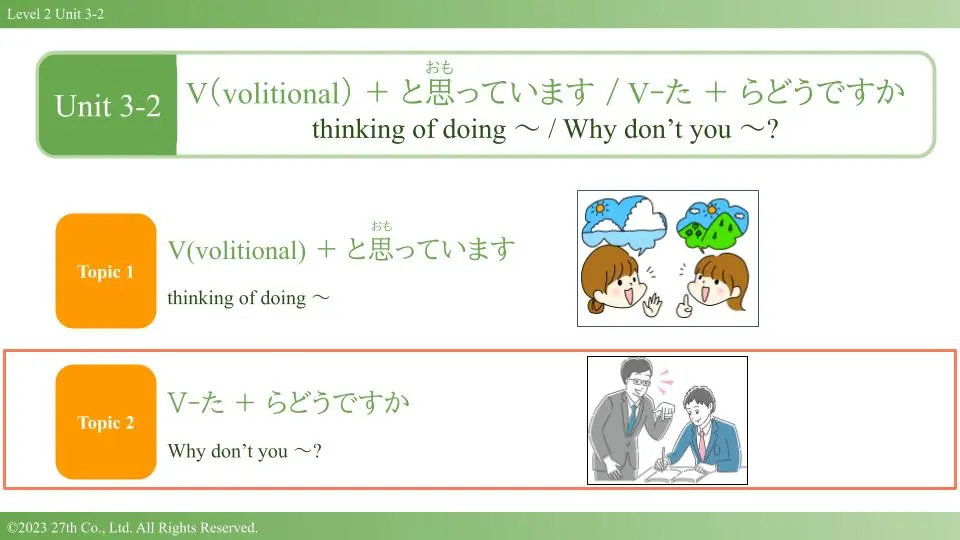
Offering Friendly Advice in Japanese: Mastering V-た + らどうですか
Introduction Have you ever wanted to suggest a course of action to someone in Japanese, like “Why don’t you take some medicine?” or “How... Read more.
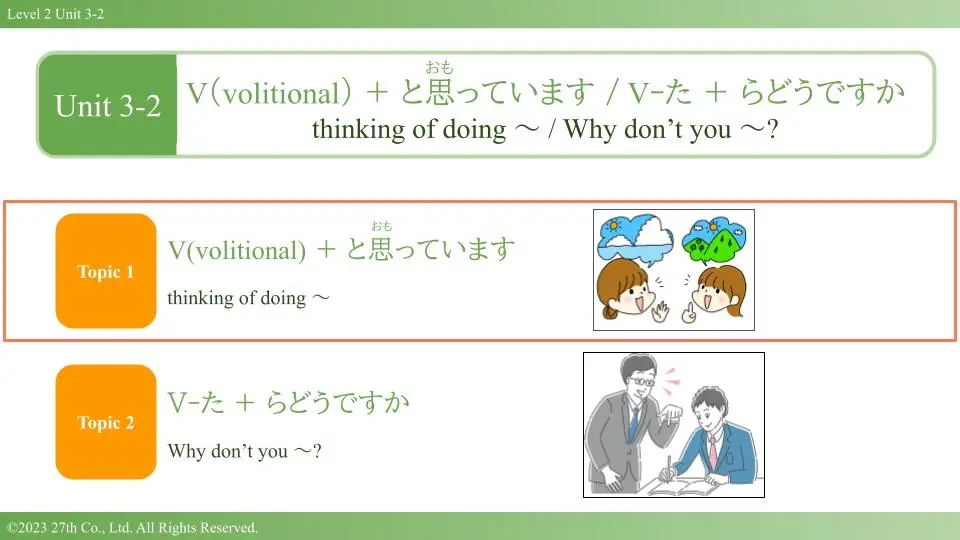
Making Plans in Japanese: Expressing Intentions with V(volitional) + と思っています
Introduction You’ve learned how to make casual invitations with the volitional form (e.g., 行こう! – Let’s go!). Now, let’s explore... Read more.
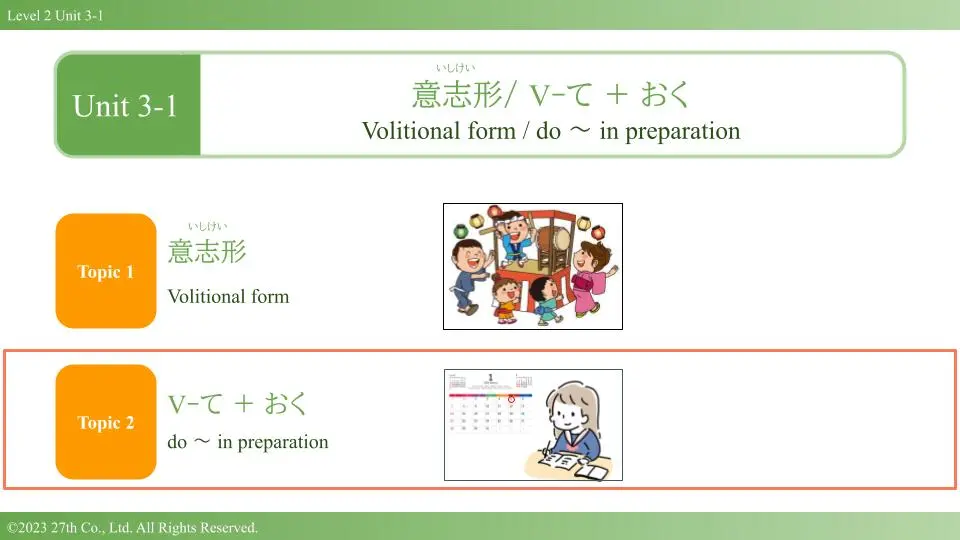
Getting Ready in Japanese: Mastering V-ておく (te oku)
Introduction In Japanese, when you want to talk about doing something in advance – whether it’s preparing for a future event or leaving something in a certain... Read more.
